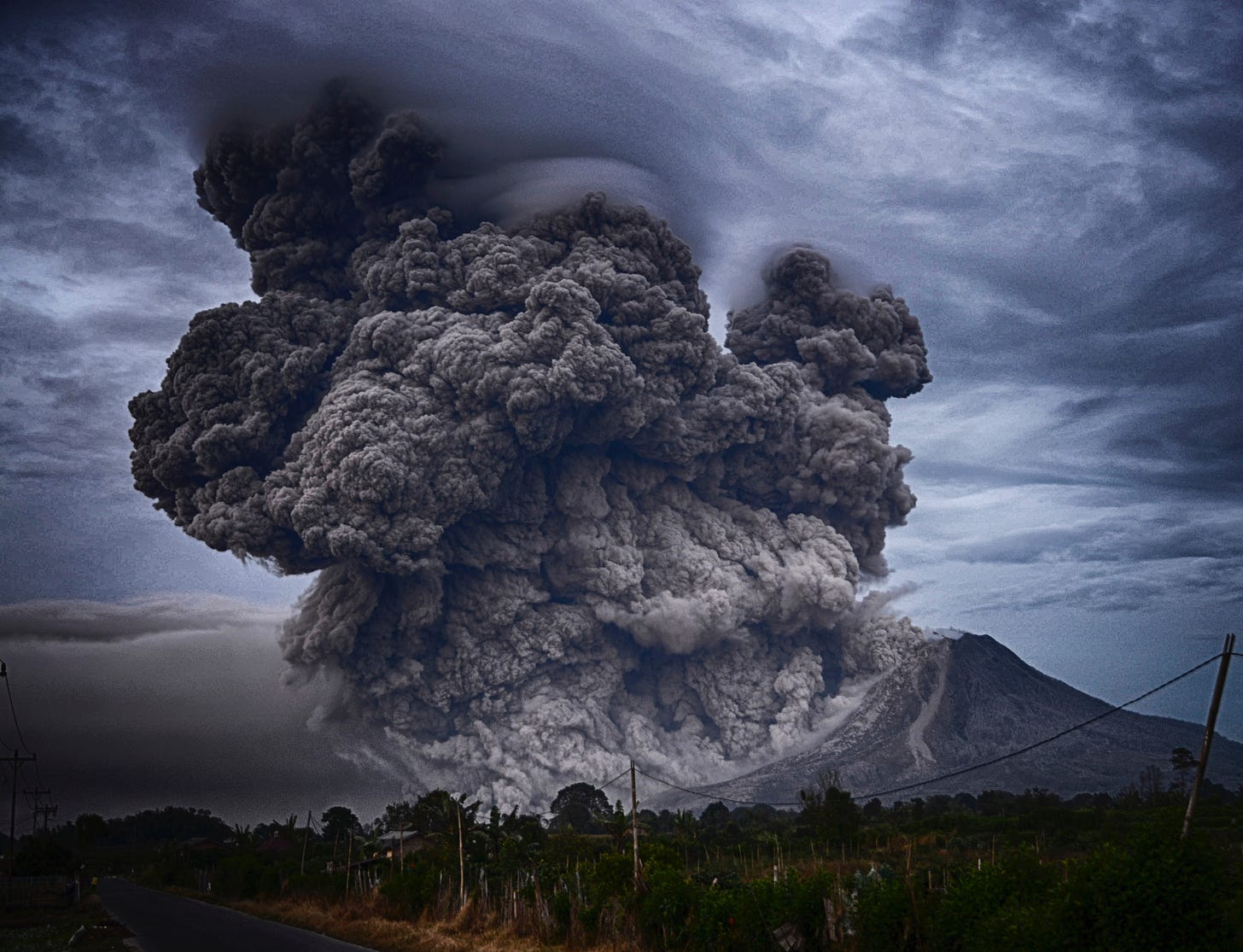Highlights: Sabbath is for the Earth as much as it is for people. God’s healing all of creation, not just humanity. The practice of listening to the earth feeds our practice of listening to Black music and vice versa.

Hi everyone,
This week we return to Sabbath, holding it together with Salvation from last week. I invite you to recall that we are listening for the resonances between these different Notes of Rest that God gives. This week I want to think about salvation - that is, healing, saving, delivering, rescuing - as it pertains to Sabbath and our listening to the Earth.
Oftentimes when we think of Sabbath we think primarily about us taking time off so that we can enjoy God and our leisure activities. In this view, Sabbath is primarily about us and how much God loves humanity. The thought goes that God so loved humanity that God brought Jesus to us to save us. And in the case of Western individualism, the message even more so becomes God came to save us just one by one.
But throughout Scriptures we see God healing, restoring, and rescuing way beyond the individual human. First, as it pertains to the human, God comes to liberate groups of people like the Hebrew slaves writ large from Egyptian rule, or the remnant of Israel from Babylonian captivity centuries later, or groups of people in the New Testament settings whose households were baptized all at once (e.g, Lydia in Acts 16). On this view, Sabbath is a communal practice where we should celebrate together what God has done in our midst. I explore this in more depth in Post 3.
How is God calling your community to weekly celebrate God’s liberation of you from bondage?
But Scripture also includes in Sabbath the land and presumes that we are listening to the land as the land expresses her needs. Deut 5:14-15 touches on this, where the livestock are mentioned as needing to rest alongside the people.
14 But the seventh day is a Sabbath to the Lord your God; you shall not do any work—you, or your son or your daughter, or your male or female slave, or your ox or your donkey, or any of your livestock, or the resident alien in your towns, so that your male and female slave may rest as well as you. 15 Remember that you were a slave in the land of Egypt, and the Lord your God brought you out from there with a mighty hand and an outstretched arm; therefore the Lord your God commanded you to keep the Sabbath day.
Sabbath keeps Israel from becoming their oppressors, both over other people and over the land. (In order to build bigger and bigger self-glorifying monuments you need more and more materials.) By hearing and responding to the needs of the land to let her rest too, you are then able to practice the restorative (salvific) note of rest that God put in place for all creation.
Dr. Willie Jennings notes that core to the legacies of European colonialism has been the operation to render the earth mere object useful for manipulation. The Earth becomes a footstool on top of which the human is able to prop up their (usually his) feet. Robin Wall Kimmerer teaches us in Braiding Sweetgrass that the current climate crises are showing how much of a problem this way of thinking is.
But here’s a challenge we must face: do we even want to listen to the Earth?
For doing so would require severe curtailing of our freedoms. And empires cannot compute curtailment. So it is not so easy to just answer simply. In his new book When Time Is Short: Finding Our Way in the Anthropocene, Timothy Beal notes that we are not meant to be mere stewards of the earth, but to live as earth creatures who are bound up with the earth. (More on him later.)
That is why we need to remember the salvific logic from Moses in Deuteronomy.
Core to Sabbath is listening to the Earth and remembering God’s goodness to all of creation.
When we pause from working on Sabbath, we invite a different posture to listening. We can hear the Note of Rest better when we draw together in community and attend to all of the persons in need of rest, human and otherwise.
How does your Sabbath practice provide rest for the land?
Perhaps you don’t drive as much on Sabbath so you’re not emitting as many emissions and aren’t as much of a threat to local wildlife. (Kimmerer has harrowing stories about the problem of roadkill in her chapter “Collateral Damage” in Braiding Sweetgrass, oh man.) Or perhaps you cook at home on Sabbath so you are not creating more plastic bag waste from takeout. Or perhaps you cultivate your garden, pruning stems or uprooting weeds that are crowding out other animals. Or perhaps you put down your phone so you can better listen to the earth around you. Whatever practice, I invite you to share in the comments below and let that point you away from the death dealing logics of our hyper-productive age.



